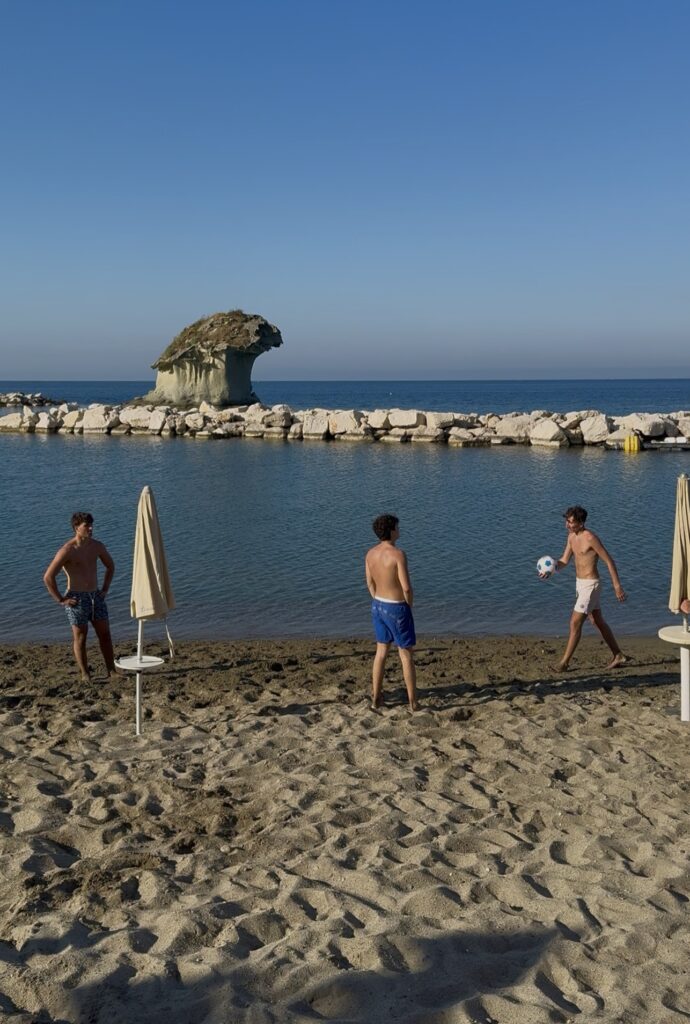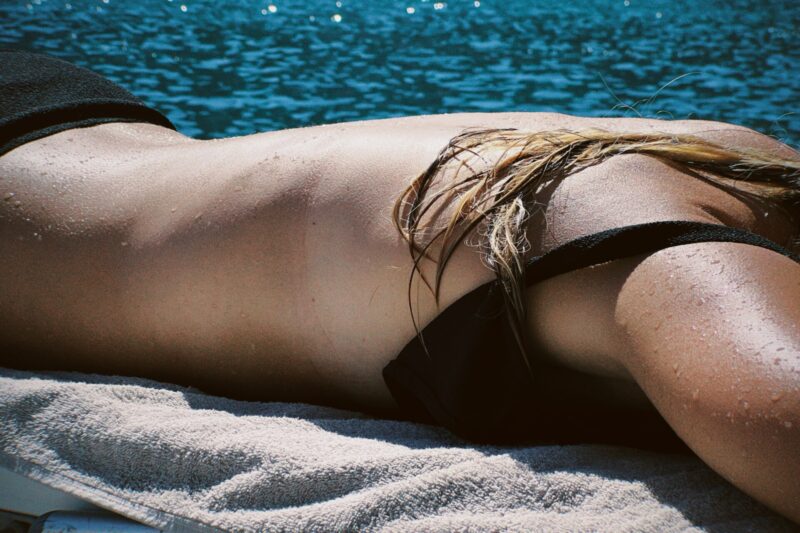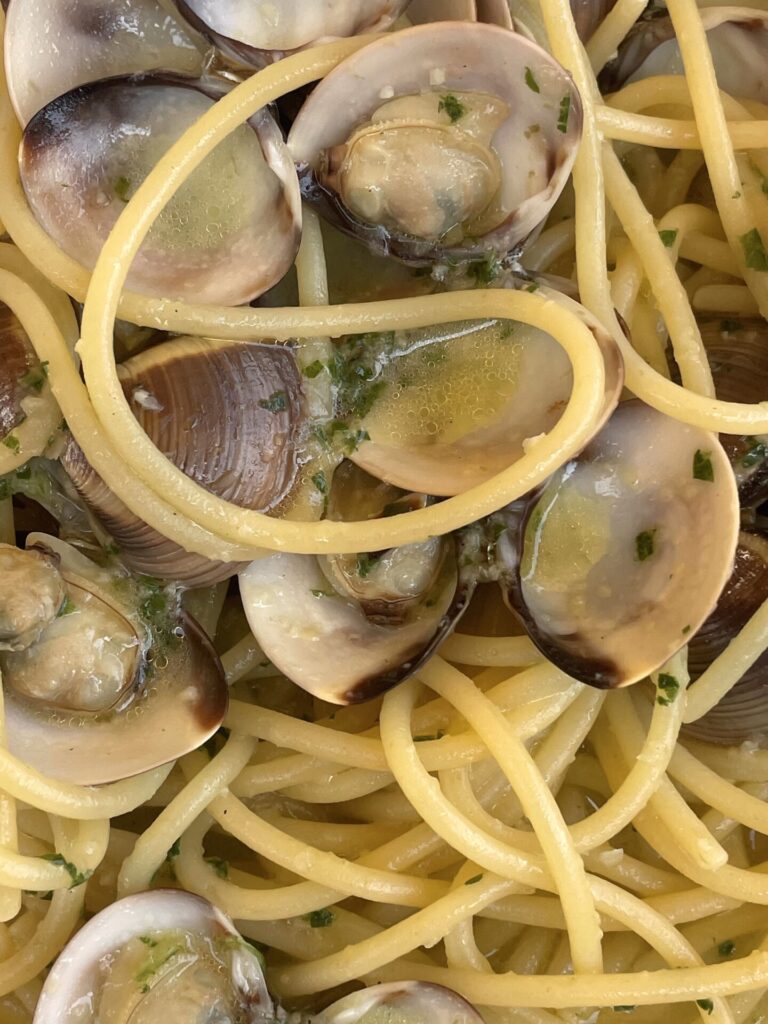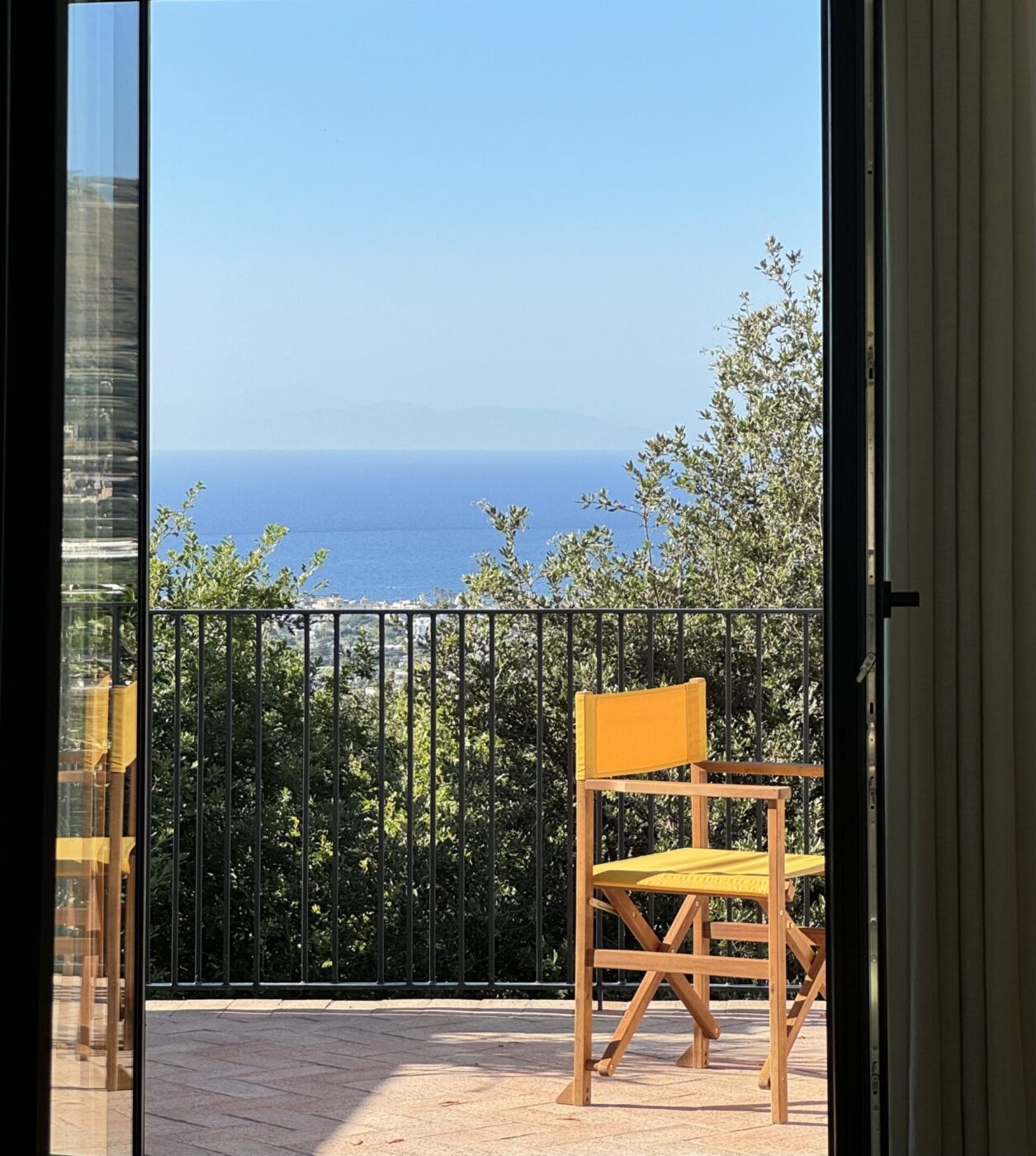
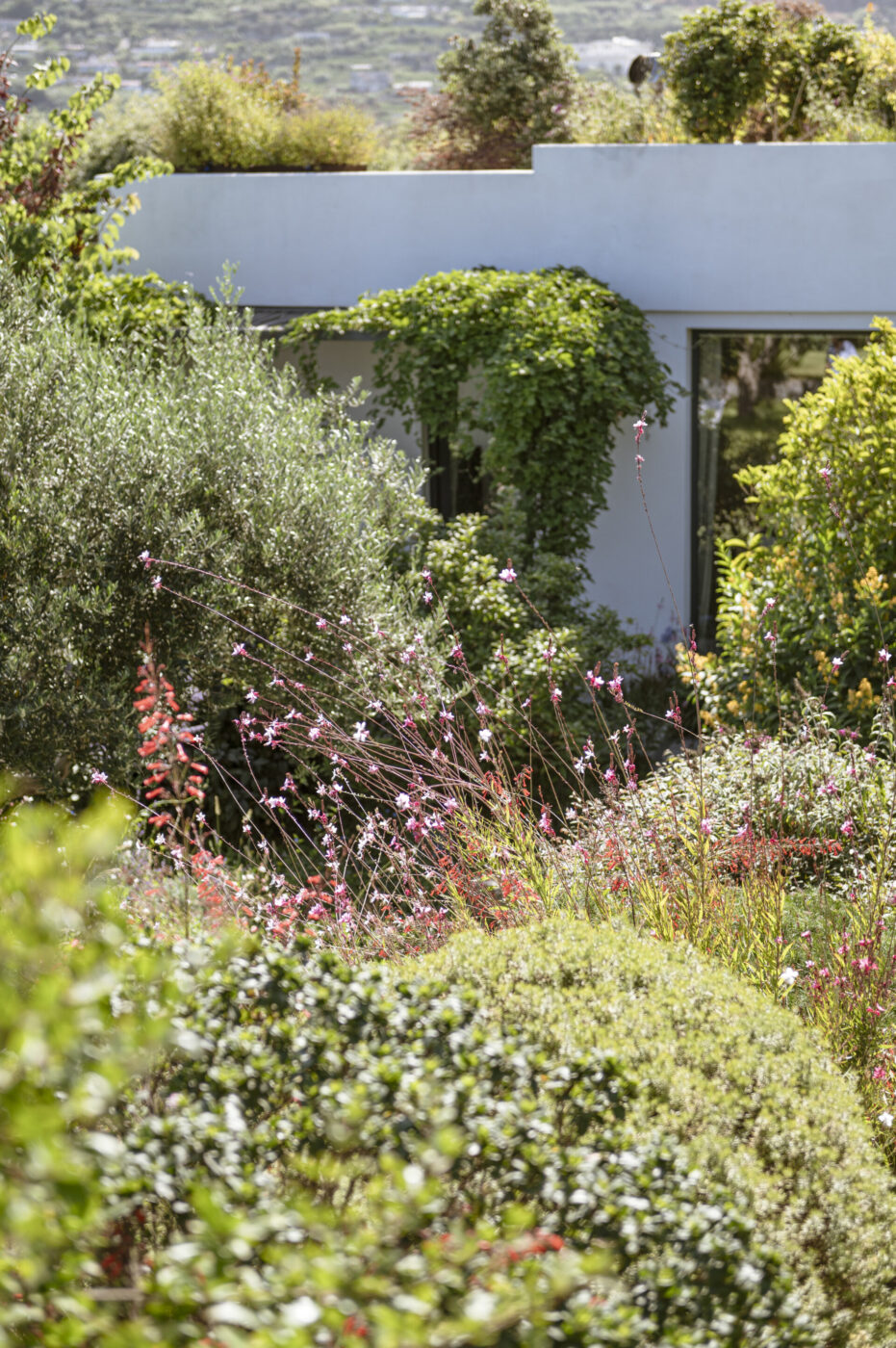
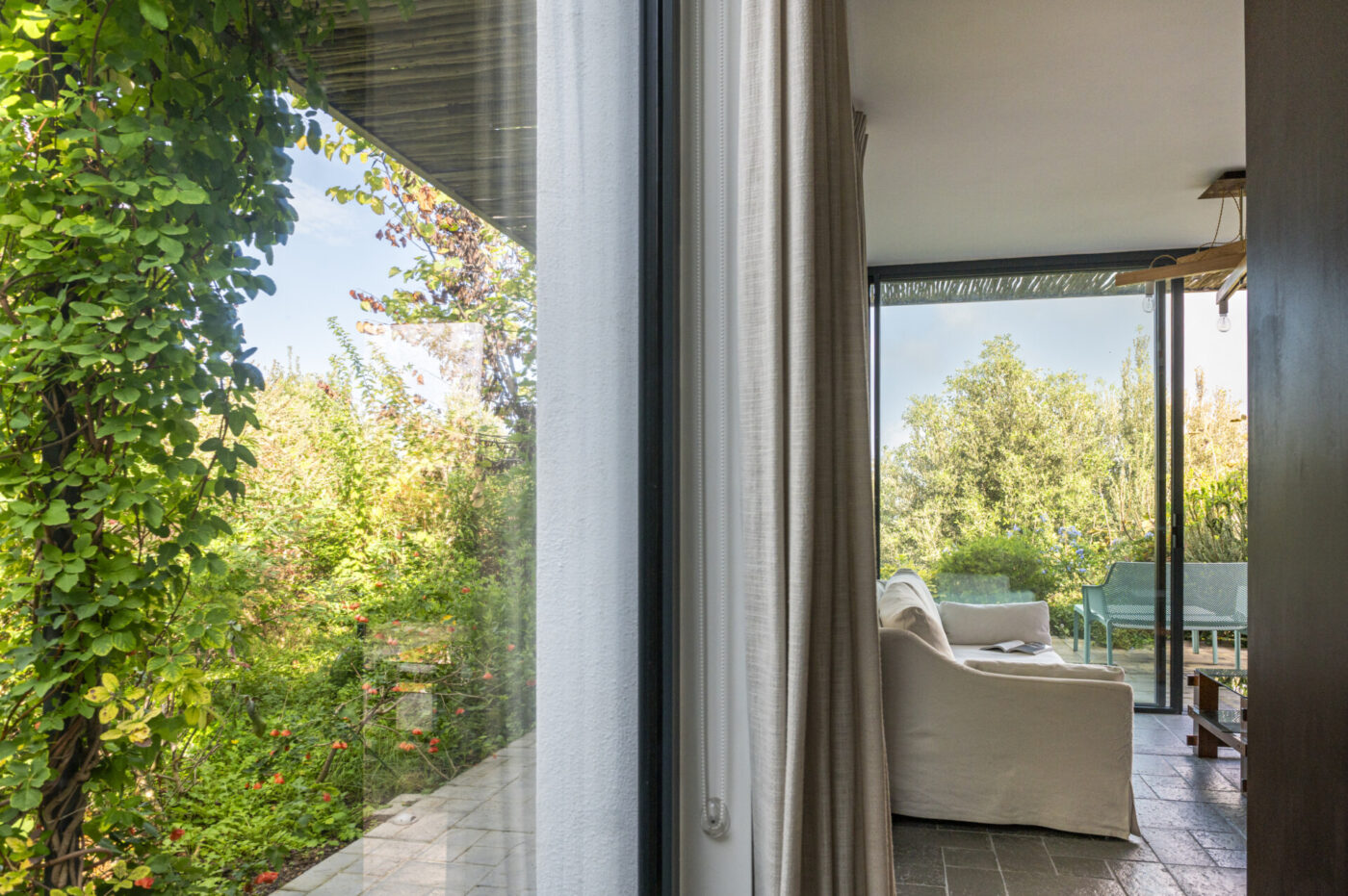
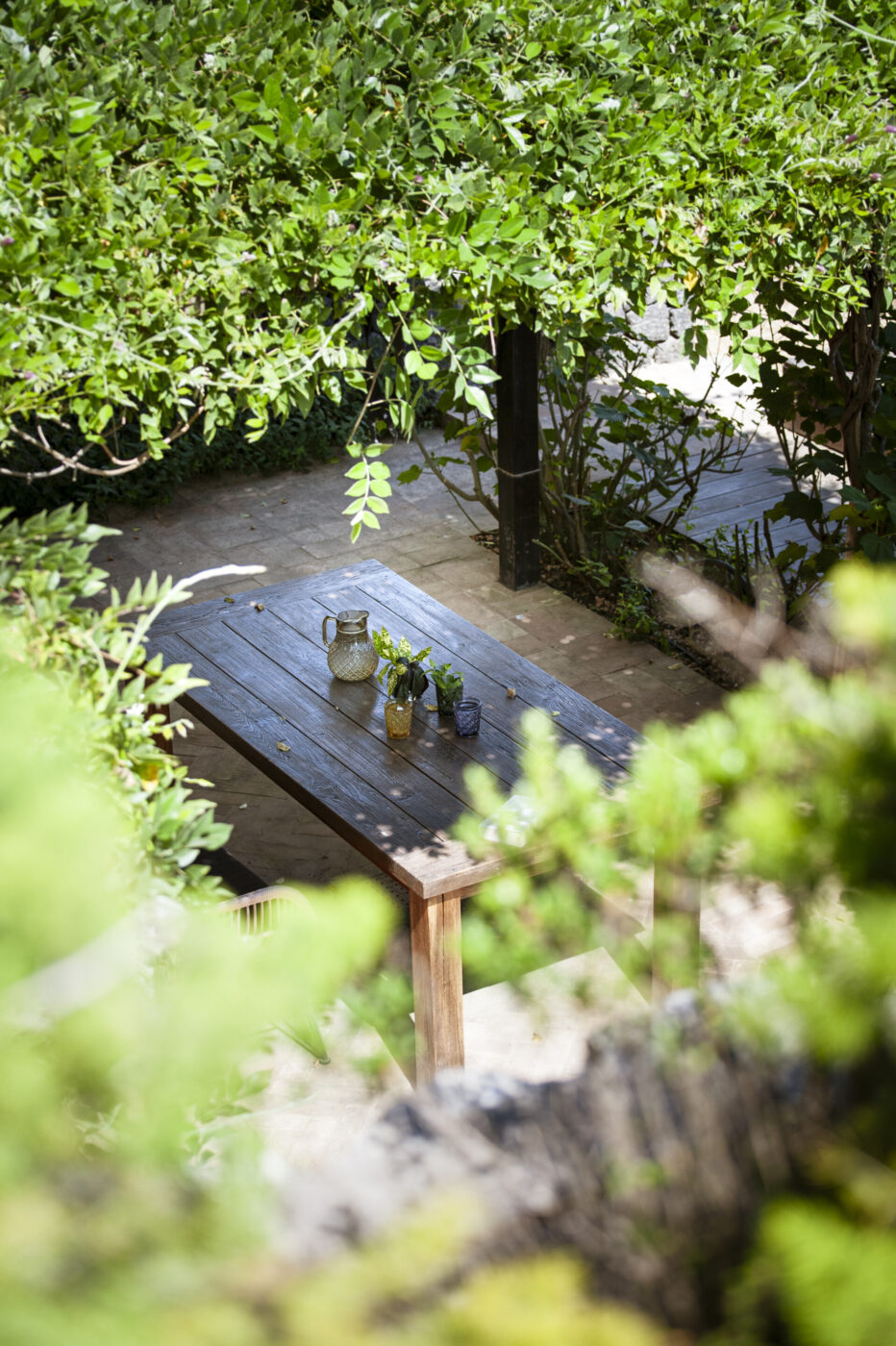
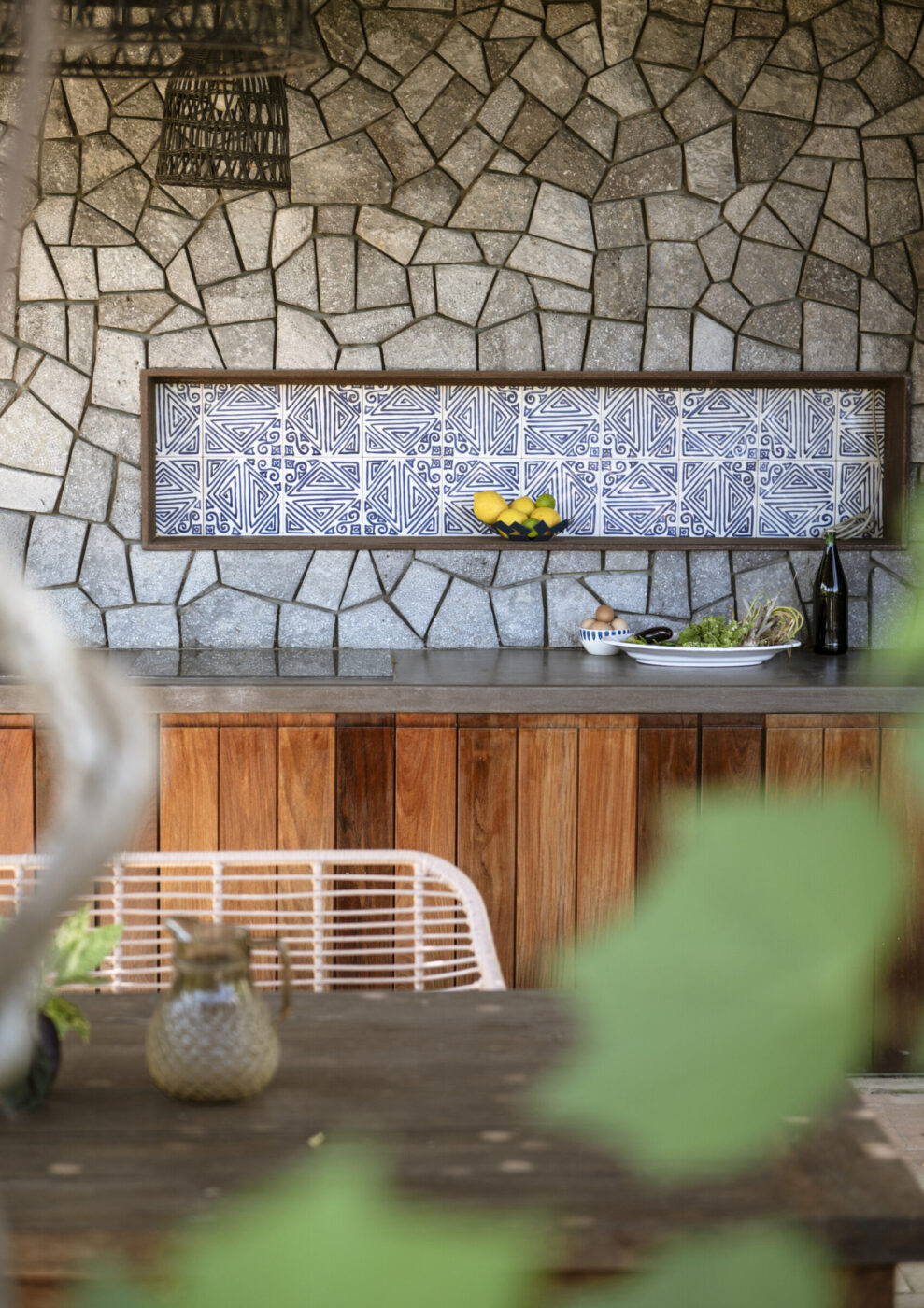
Casa Via Costa
Gardens and guesthouses above the sea in Ischia
Open year-round
Use code ITALYSEGRETA15 for 15% off your stay until May 17th, 2026 (min. 3 nights)
There are views, and then there are views from Punta Imperatore. At Casa Via Costa, a collection of independent guesthouses nestled into the lush cliffs of Ischia’s western edge, the sea stretches endlessly one way, the mountains the other, and a tranquil Mediterranean garden hums in between.
This is not your typical Ischian stay—and that’s exactly the point. Casa Via Costa is a passion project rooted in family legacy, a return to origins that blossomed into something spectacular. Owner Jeff Di Costanzo, born in Ischia and raised in Sydney, spent summers on the island as a child and returned to his father’s homeland after his passing. “He loved it,” Jeff tells us, “and his passing prompted me to follow my long-held dream of living in Italy.” That dream has since materialized into four beautifully restored guesthouses—Casa Rocco, Casa Luisa, Casa Daniele, and soon, Il Pollaio (a restored chicken barn)—each with its own character, privacy, and sea-facing garden. Come 2026, a larger four-bedroom villa, Villa Di Costanzo, will join the estate.
“I wanted to create a place that provided guests an authentic experience when visiting Ischia,” Jeff says. “We have chickens, honeybees, and a vegetable garden for guests to enjoy—each casa has their own raised garden bed where guests are invited to fill their basket with seasonal produce.” This hands-on intimacy with the land is no gimmick; rather, it’s a continuation of the Ischian agrarian tradition and cultural roots of living off the land.
But what truly sets Casa Via Costa apart is the design. While many properties on the island date back to the construction boom of the ’70s and ’80s—and still reflect that era—this estate was envisioned as something fresher. The guesthouses are spacious (each around 50 square meters) and have been thoughtfully renovated to reflect Jeff’s global design sensibility, while remaining grounded in the materials and spirit of Ischia.
“I wanted to respect the territory as much as possible when designing and building Casa Via Costa,” Jeff explains—local rock for the walls, hand-painted ceramic tiles that nod to the island’s artisanal past, and timber accents that echo the island’s wild inland areas. In the bathrooms, you’ll find terrazzo floors sourced from a workshop just outside Naples—known locally as pavimento della nonna—and custom-made countertops with glazed pennellato tiles from Vietri sul Mare. The custom-built oak kitchens, too, are a highlight, with Carrara marble counters.
There’s an attention to detail, but never a heavy hand. The result? Spaces that feel modern, clean, and light-filled, with just the right amount of rustic. In the Il Pollaio guesthouse, for example, one wall has been entirely replaced with a sliding glass door, while the same stone flooring continues from inside to the outdoor terrace, merging indoors and outdoors in a way that makes summer living feel al fresco. Each guesthouse has its own distinctive character while remaining in harmony with one another—so it’s no surprise that Casa Via Costa has become a favorite among architects, designers, and creatives.
Commitment to the island extends to the garden, too—developed into a naturalistic sanctuary that promotes biodiversity. “The transformation of the garden is probably what has brought me the most joy,” Jeff shares. “I introduced bees and started producing my own honey.” Native and heat-tolerant plants—in other words, water-wise greenery—were chosen to thrive in this southern climate, supported by restored cisterns for irrigation and solar panels.
Days at Casa Via Costa unfold slowly. Wake up to birdsong and the scent of salt and rosemary. Practice yoga in the outdoor sea-view area. Sip coffee on your private terrace with panoramic views of Citara Bay and Mount Epomeo. Wander down to the nearby lighthouse or the local bakery in Panza for a morning loaf. Then back to pick basil, tomatoes, and garlic for lunch. (Bruschetta and insalata caprese never tasted so good.) Each house is equipped with a kitchen, so you can prepare your own meals to be enjoyed on your private terrace.
From there? Do as much—or as little—as you like. Hike a coastal trail. Soak in the natural hot springs of Sorgeto. Snooze in a hammock. Read. Explore the island like a local and rent a scooter (delivered to your doorstep) to breeze through the mountain towns. Or a boat for a lazy loop around Ischia’s hidden bays. (The team here can arrange private excursions and tours for you.)
At sunset, join for aperitivo, or an organized wine tasting, in the garden. “The western side of Ischia is renowned for its amazing sunsets,” Jeff says—and from this perch, it’s easy to see why. Then saunter over to La Pagliarella, just a two-minute walk away, for Coniglio all’Ischitana under a vine-covered pergola. “Enzo makes one of the best on the island,” the owner says. “He prepares bruschetta, insalata, and pasta just as my mum would.” Alternatively, on request, you can opt for a group cooking class or, perhaps to celebrate a special occasion, a private dinner in Casa Via Costa’s outdoor kitchen area.
The result is something rarely found on the island: a stay that’s both deeply rooted and refreshingly contemporary. A home—not just away from home—but ahead of the curve.
A few segreti (secrets) from Jeff Di Costanzo:
Ristorante Cantine Pietratorcia – Set in the vineyards, this winery-restaurant is just a 10-minute walk away. Try the Tenuta Chignole; it’s one of the best Biancolella wines on the island.
La Locanda di Vito – One of the island’s best pizzerias, with views of Citara Bay. The Margherita DOC is a must.
Ristorante La Pagliarella – Just a two-minute stroll from Casa Via Costa, this isn’t so much a restaurant as it is an extension of Chef Enzo’s home. There’s no menu; Enzo simply cooks what he’s got that day: maybe the freshest catch, maybe garden vegetables, maybe the island’s iconic coniglio all’Ischitana, which he does better than anyone else.
Franco Calise Ceramics – Whether you’re interested in buying something or not, you can’t miss a stop into La Madonnella to watch Franco Calise at work. This master artisan hand-paints each Baroque-style ceramic piece, often bringing local scenes and landscapes to life with remarkable detail.
Giardini La Mortella – La Mortella in Forio started as a bare volcanic hillside and became a vibrant garden thanks to Lady Susana Walton—wife of the celebrated British composer Sir William Walton—and landscape architect Russell Page. Exotic plants, fountains, and bold landscaping create a space that feels both theatrical and alive, with surprises around every corner—from tropical palms and shimmering ponds to hidden pathways and evening concerts.
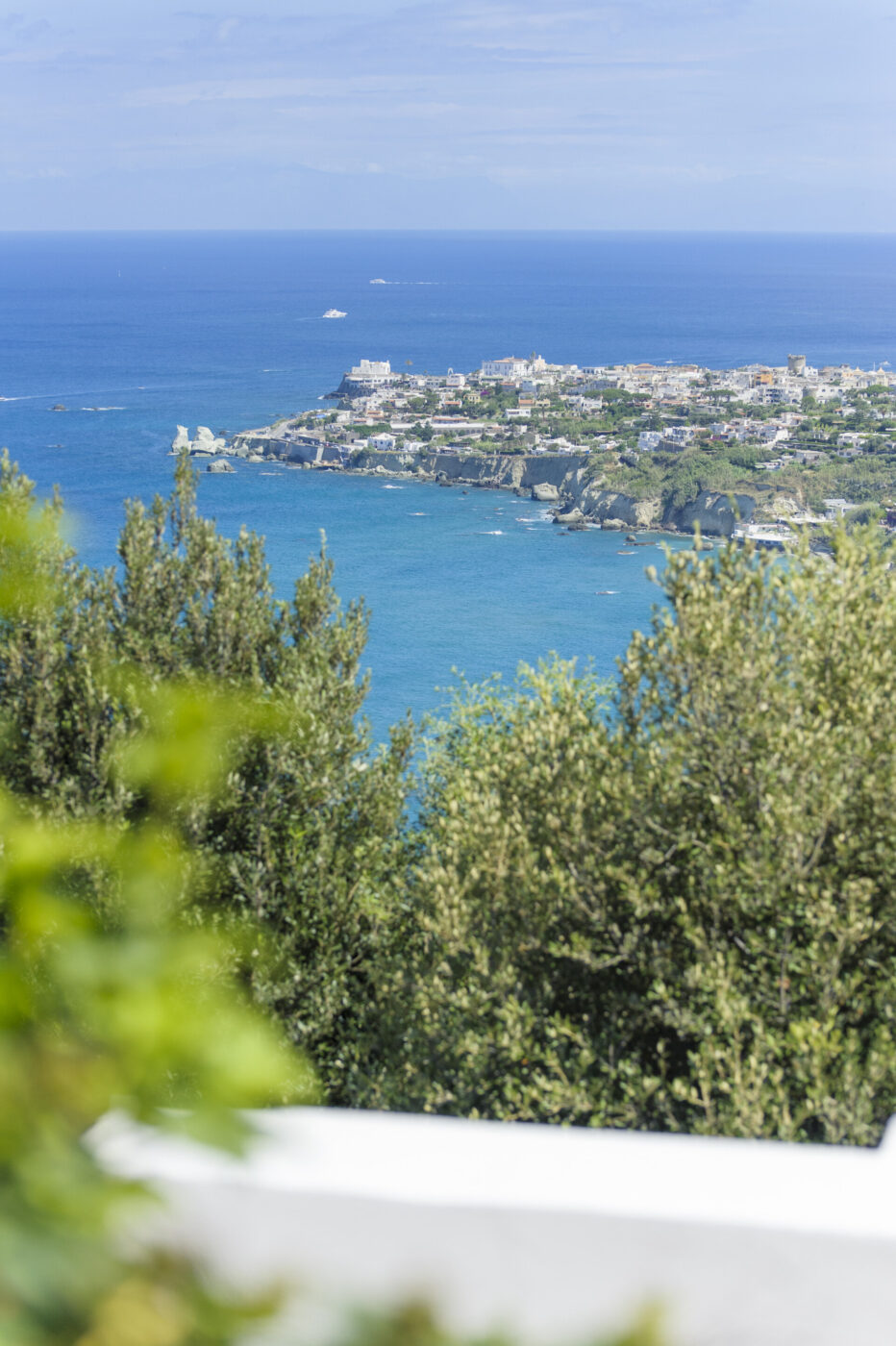
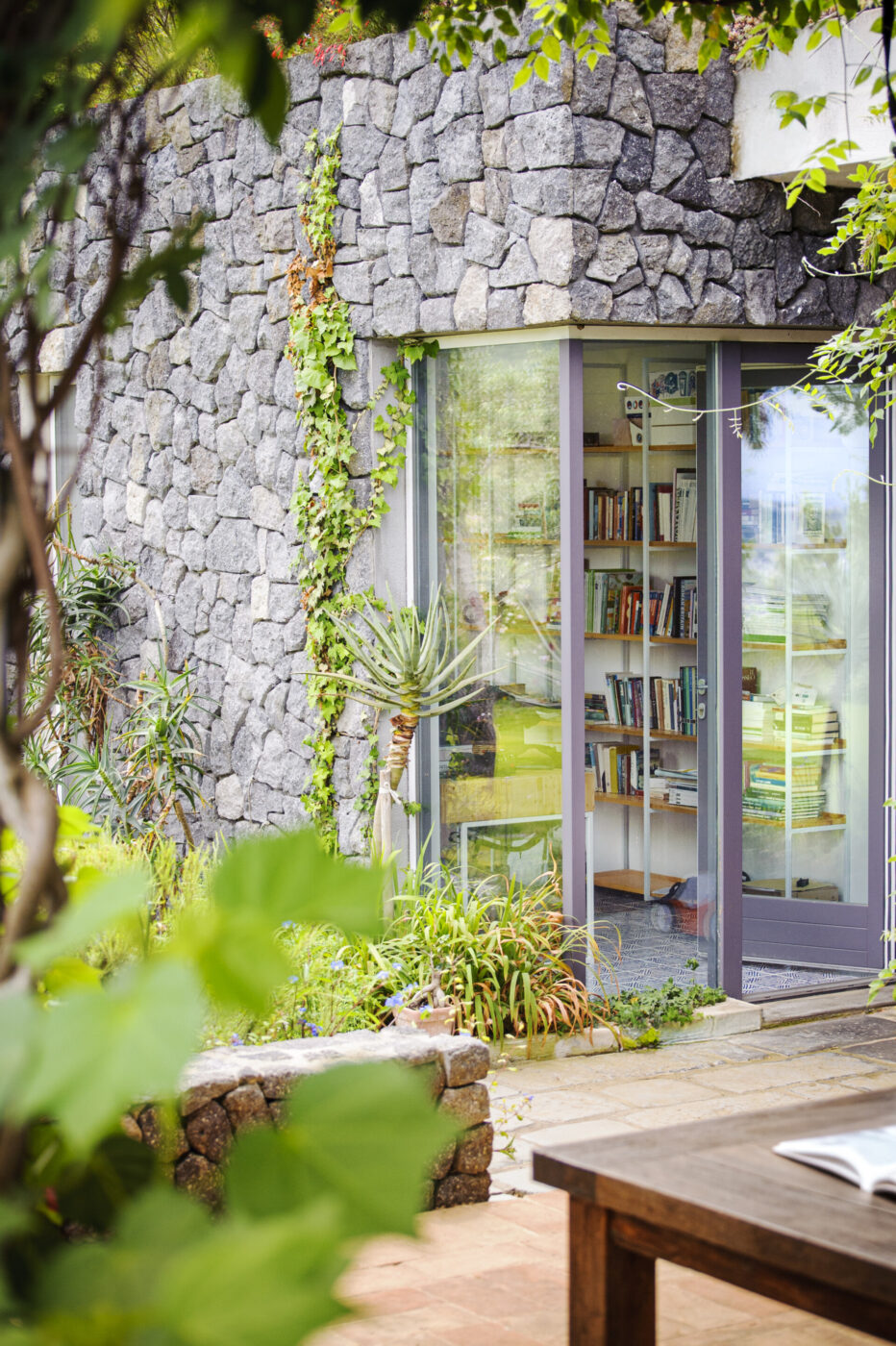
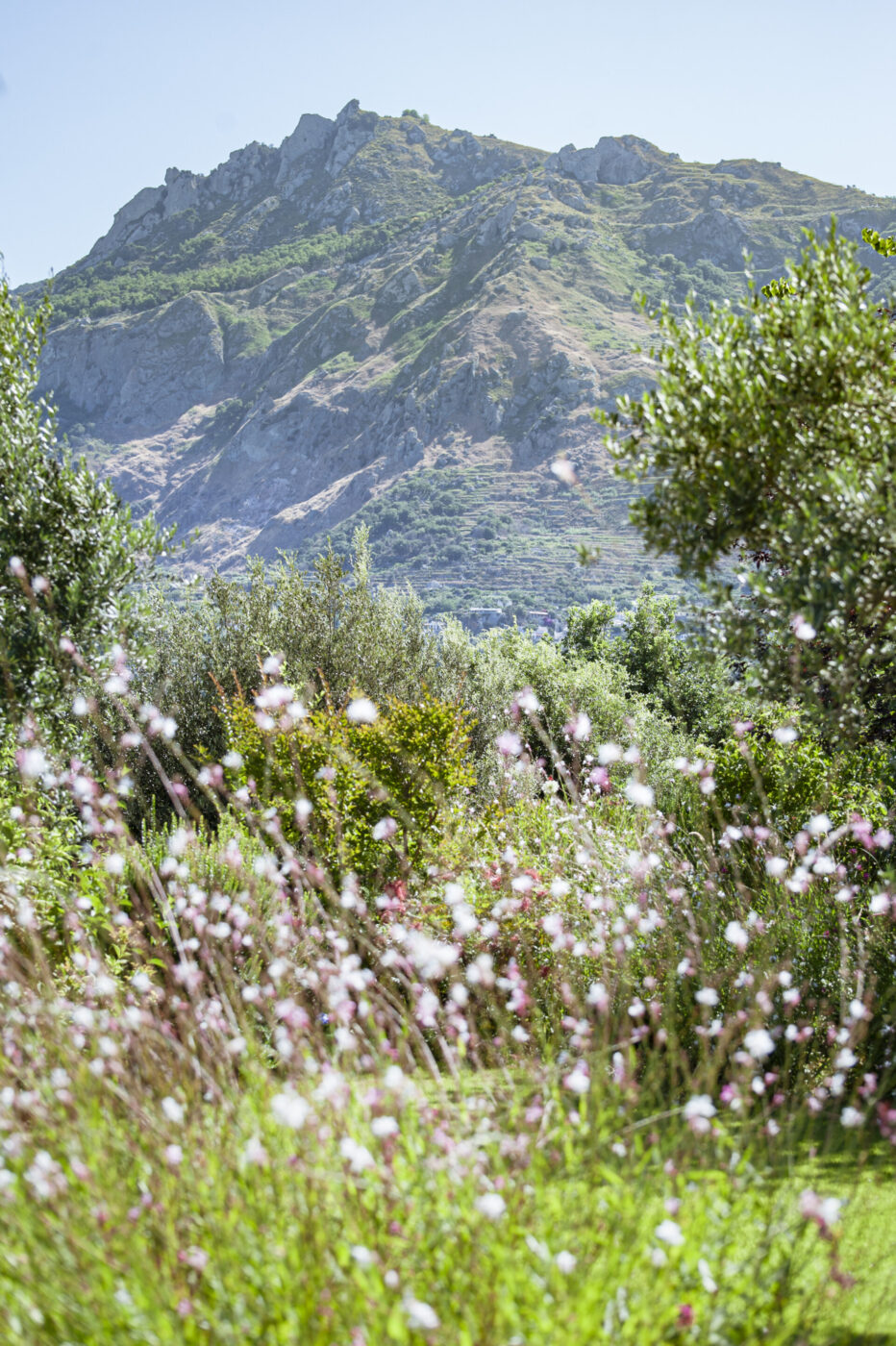
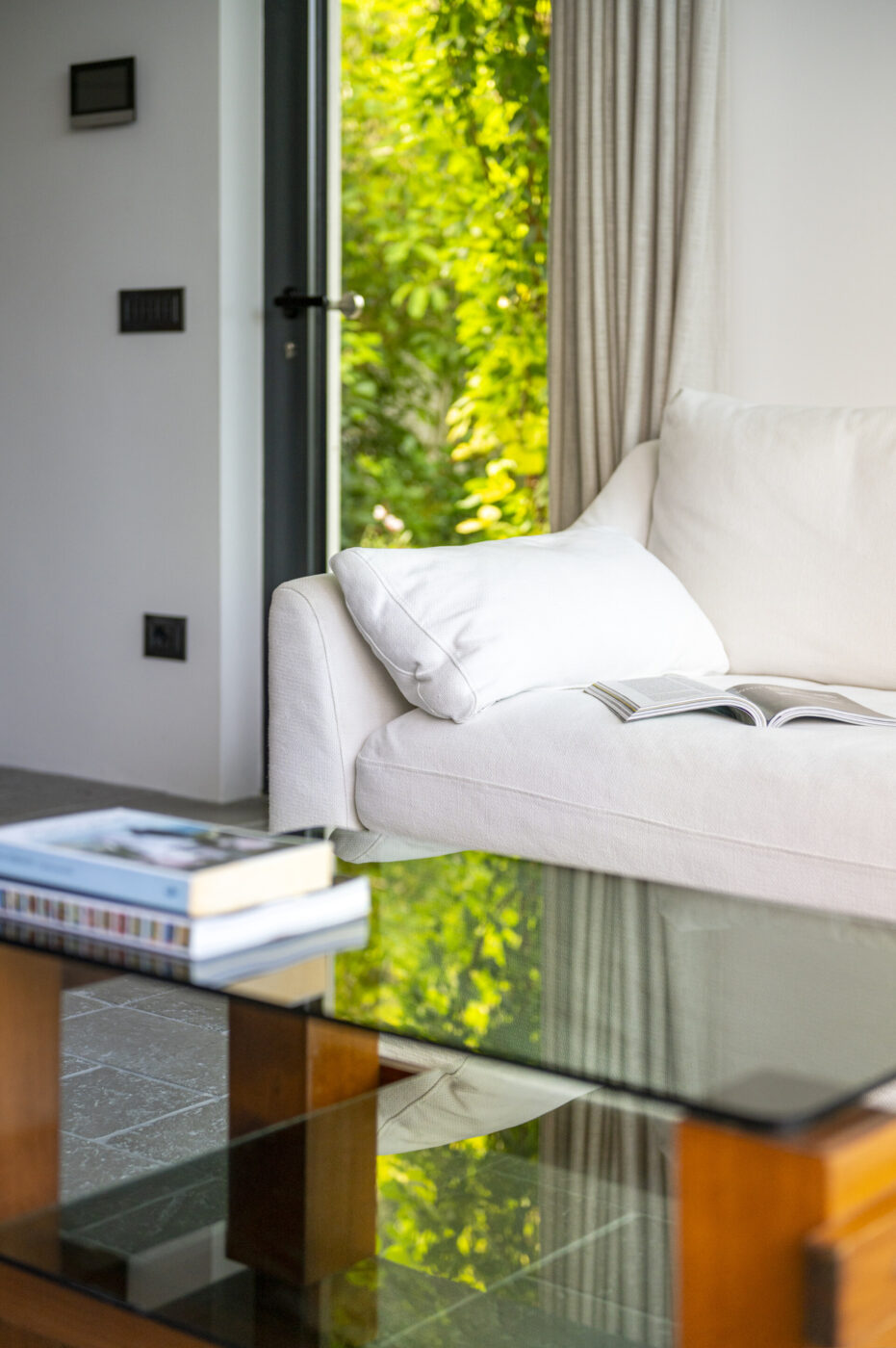
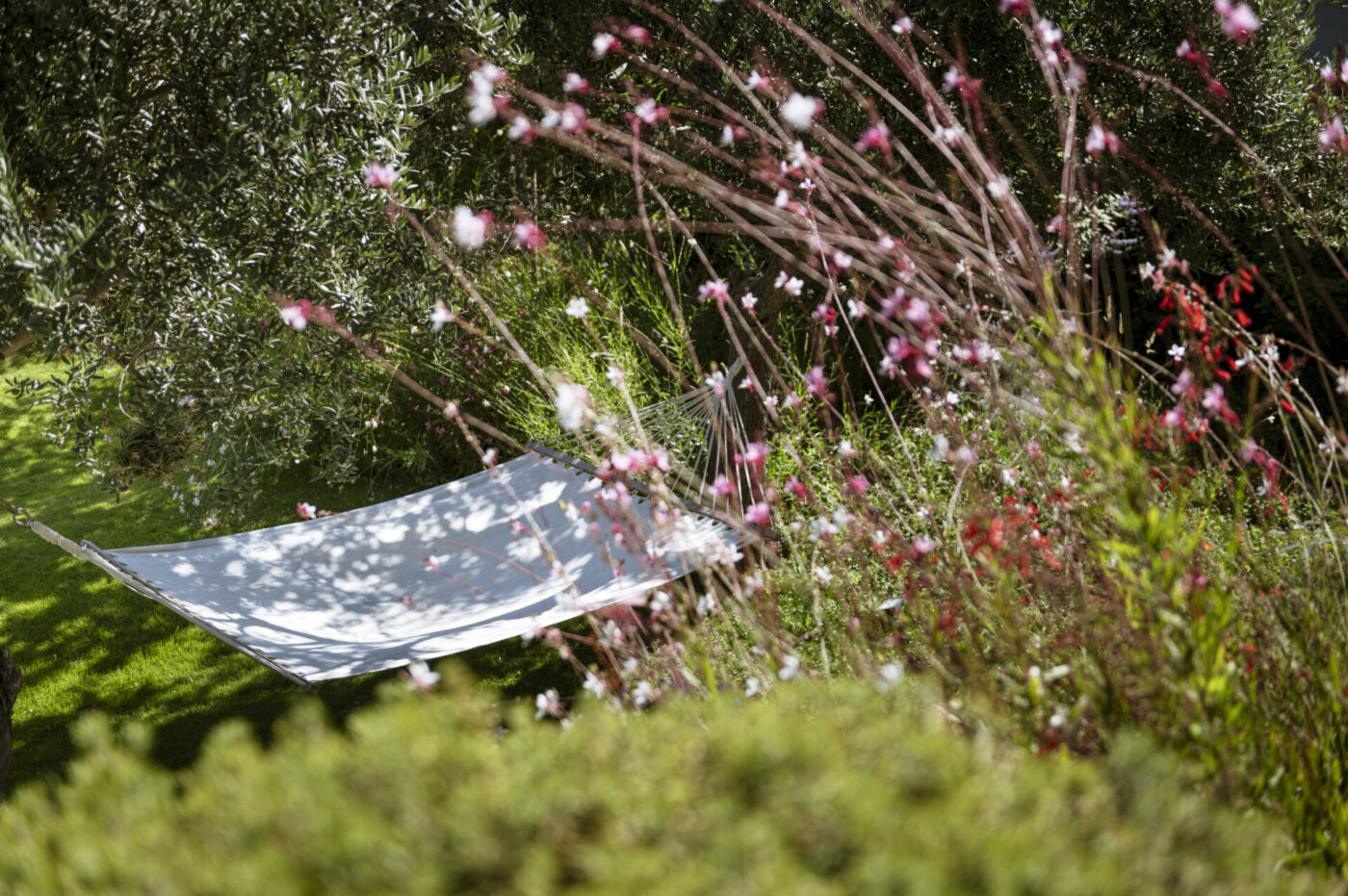
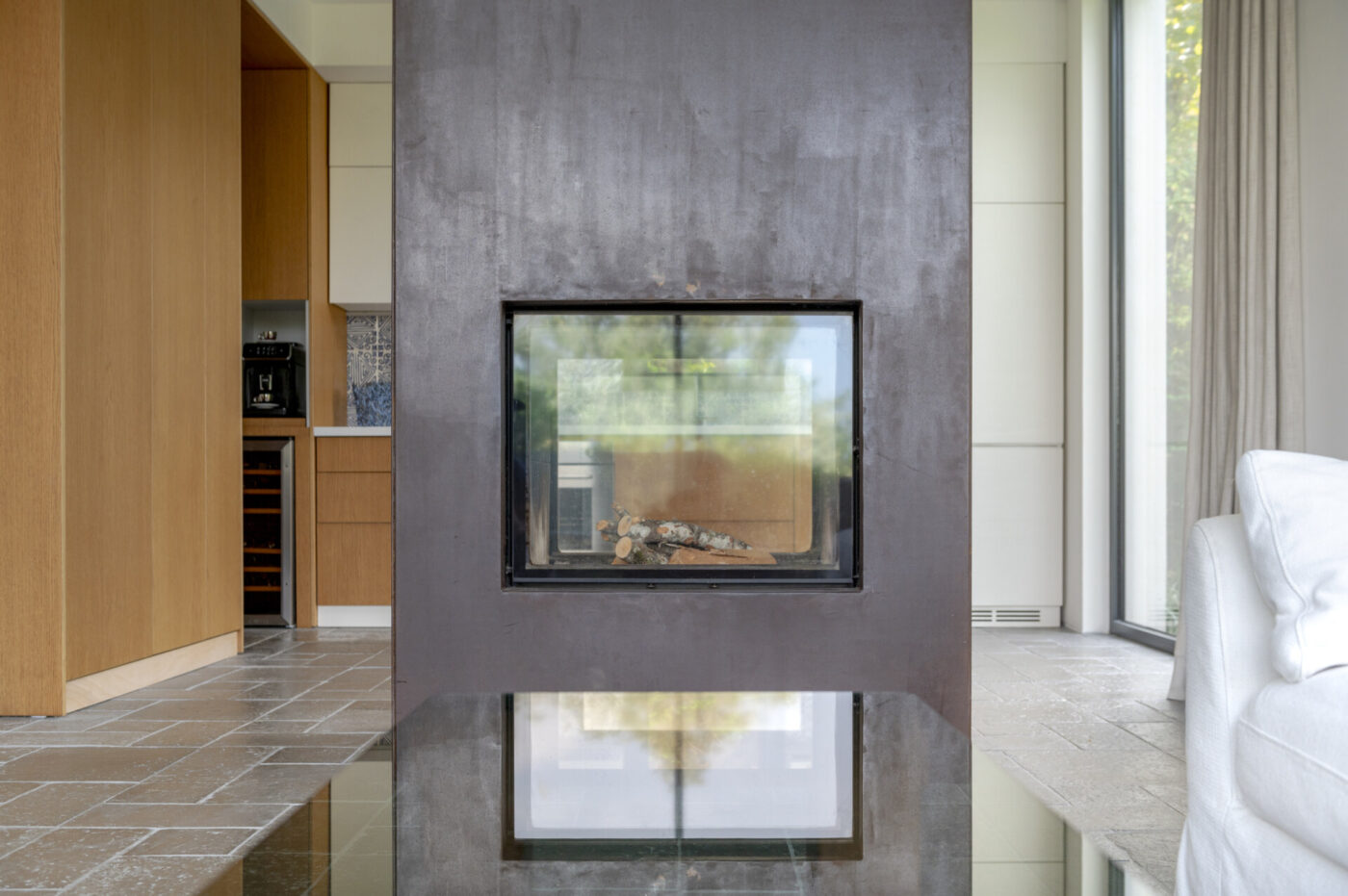
Casa Via Costa
Ristorante Cantine Pietratorcia
La Locanda Di Vito
Ristorante La Pagliarella
Franco Calise Ceramics
Giardini La Mortella
